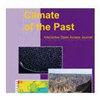沉积通量主导冰川-间冰期海洋碳库存变化:过去 78 万年因子模拟的结果
IF 3.2
2区 地球科学
Q1 GEOSCIENCES, MULTIDISCIPLINARY
引用次数: 0
摘要
摘要。由于陆地、海洋、海洋沉积物、大气和岩石圈之间的净交换通量,大气中的二氧化碳浓度在冰期周期中发生了变化。海洋沉积物和冰岩芯保存了这些碳转移的生物地球化学证据,这些证据来自各种碳库对气候作用力的敏感性,其中有许多仍然知之甚少。数值研究证明,在稳态冰川条件下,一些物理和生物地球化学过程有可能对大气中的二氧化碳产生影响。然而,目前还不清楚这些过程在冰川周期的瞬时变化中对碳循环的影响程度,也不清楚沉积有机碳和无机碳以及营养物质的埋藏和释放所起的作用。为了解决这一不确定性,我们利用包括动态海洋沉积物在内的中等复杂度 Bern3D 地球系统模型,对过去 780 千年冰川期的反复起始和终止过程中的各种物理和生物地球化学碳循环作用力进行了模拟组合。通过这种集合可以评估这些不同作用力导致的瞬时碳循环变化,并对持续扰动的地球系统中相关的碳通量和同位素变化获得基于过程的理解。我们介绍了非平衡冰川周期中地球系统动态变化的模拟结果,并与多个代用时间序列进行了比较。在我们的模拟中,海洋存量在上一次冰川期变化了 200-1400 GtC,大气存量变化了 1-150 GtC。在有交互沉积物和没有交互沉积物的模拟中,DIC 的变化最多相差 28 倍,而在有交互沉积物的模拟中,大气中 CO2 的变化最多相差四倍。有交互沉积物的模拟结果显示,DIC 或营养物质浓度与大气中 CO2 变化之间没有明显的相关性,这突出表明在实践中可能需要进行多代理分析,以了解冰川周期中全球碳循环的变化。用冰期地质碳循环平衡开始瞬态模拟会导致同位素漂移,需要几百kyr才能克服,因此在设计自旋策略时需要加以考虑。本文章由计算机程序翻译,如有差异,请以英文原文为准。
Sediment fluxes dominate glacial-interglacial changes in ocean carbon inventory: results from factorial simulations over the past 780,000 years
Abstract. Atmospheric CO2 concentrations changed over ice age cycles due to net exchange fluxes between land, ocean, ocean sediments, atmosphere, and the lithosphere. Marine sediment and ice cores preserved biogeochemical evidence of these carbon transfers, which resulted from sensitivities of the various carbon reservoirs to climate forcing, many of which remain poorly understood. Numerical studies proved the potential of several physical and biogeochemical processes to impact atmospheric CO2 under steady-state glacial conditions. Yet, it is unclear how much they affected carbon cycling during transient changes of repeated glacial cycles, and what role burial and release of sedimentary organic and inorganic carbon and nutrients played. Addressing this uncertainty, we produced a simulation ensemble of various physical and biogeochemical carbon cycle forcings over the repeated glacial inceptions and terminations of the last 780 kyr with the Bern3D Earth system model of intermediate complexity including dynamic marine sediments. This ensemble allows for assessing transient carbon cycle changes due to these different forcings and gaining a process-based understanding of the associated carbon fluxes and isotopic shifts in a continuously perturbed Earth system. We present results of the simulated Earth system dynamics in the non-equilibrium glacial cycles and a comparison with multiple proxy time series. In our simulations the ocean inventory changed by 200–1400 GtC and the atmospheric inventory by 1–150 GtC over the last deglaciation. DIC changes differ by a factor of up to 28 between simulations with and without interactive sediments, while CO2 changes in the atmosphere are at most four times larger when interactive sediments are simulated. Simulations with interactive sediments show no clear correlations between DIC or nutrient concentrations and atmospheric CO2 change, highlighting the likely need for multi-proxy analyses to understand global carbon cycle changes during glacial cycles in practice. Starting transient simulations with an interglacial geologic carbon cycle balance causes isotopic drifts that require several 100 kyr to overcome, and needs to be considered when designing spin-up strategies.
求助全文
通过发布文献求助,成功后即可免费获取论文全文。
去求助
来源期刊

Climate of The Past
地学-气象与大气科学
CiteScore
7.40
自引率
14.00%
发文量
120
审稿时长
4-8 weeks
期刊介绍:
Climate of the Past (CP) is a not-for-profit international scientific journal dedicated to the publication and discussion of research articles, short communications, and review papers on the climate history of the Earth. CP covers all temporal scales of climate change and variability, from geological time through to multidecadal studies of the last century. Studies focusing mainly on present and future climate are not within scope.
The main subject areas are the following:
reconstructions of past climate based on instrumental and historical data as well as proxy data from marine and terrestrial (including ice) archives;
development and validation of new proxies, improvements of the precision and accuracy of proxy data;
theoretical and empirical studies of processes in and feedback mechanisms between all climate system components in relation to past climate change on all space scales and timescales;
simulation of past climate and model-based interpretation of palaeoclimate data for a better understanding of present and future climate variability and climate change.
 求助内容:
求助内容: 应助结果提醒方式:
应助结果提醒方式:


